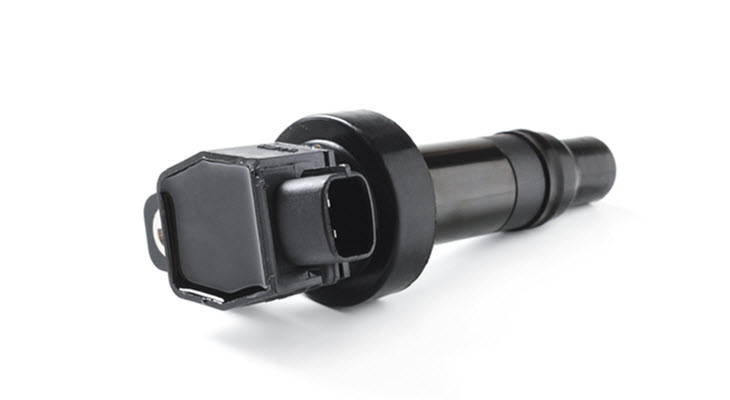


Without a working ignition coil, your Jaguar won’t be able to start. When ignition coils start to break down, there are likely to be some warning signs which should not be ignored, as complete failure can happen quite quickly. But what causes damage and failure of your ignition coils? Let’s take a deep dive into this interesting component of your Jaguar to figure things out.
Modern motors use one of three different ignition coils, though all types achieve the same end result. An ignition coil is needed to convert the low-voltage electricity supplied by the battery into powerful, high-voltage electricity. This can be used by the spark plugs to ignite the fuel in your Jaguar’s combustion chamber. All ignition coils feature some key parts: an iron core, a primary and secondary winding, and electrical connections. Let’s take a brief look at the three different types:
If your Jaguar has an even number cylinders, such as a V8 or V12 engine, then it is likely to have a dual spark ignition coil, which has two electrical connections on each of the windings.
You’ll only have a four spark ignition coil if your Jaguar has four cylinders. This type of coil features two primary windings and one secondary winding. Each output has two spark plug connections, and the primary windings are triggered by the onboard computer (ECU).
If your Jaguar features cylinders which each have a primary and secondary winding assigned to them, then your Jag uses single spark ignition coils. You can work out if this is the case by looking for them at the top of each cylinder.
There are a variety of factors which can lead to damaged ignition coils, and any of the eventualities listed below will likely explain the failure or low performance of an ignition coil.
The ignition coils are electronic parts, which means that they are prone to short circuits. This can happen for many reasons such as overheating due to high engine temperatures, natural wear and age, ECU output issues, or module failure.
The ignition coil is the second in a chain of parts and can only work with the voltage that is given to it by the battery. If the supply from the battery is low, then the output from the ignition coil will also be low. A failing battery can also overload the ignition coil too.
Mechanical damage commonly occurs when the ignition cables get damaged or the valve cover gasket fails. This can render the ignition coil inoperational and can increase the risk of spark over exponentially.
If the humidity inside your engine becomes high, it can corrode or reduce the conductivity of the contacts used by the ignition coils. The moisture found in the engine is usually caused by engine washing.
Now that we know the common reasons as to why the ignition coils can fail, let’s turn our attention to how you can tell when failure is occuring. There are three clear and simple signs that this is happening:
Ignition coil failure can wreak havoc upon the performance of your Jaguar. As they are an integral part of the combustion cycle, when the coils become faulty, you’ll notice that misfires become more common, your engine will idle roughly, and the amount of power produced by your engine will dramatically drop.
The engine management light is also commonly known as the check engine light. It illuminates when your Jaguar’s onboard computer detects an issue with the engine. The failure of the ignition coils can trigger this light as their function directly affects overall engine performance.
If the ignition coils aren’t working, neither is your Jaguar. Without the coils providing the spark plugs with voltage, the fuel in the combustion chamber won’t be ignited, and you’ll be left with a Jag that is unable to start.
If you’re a Texan driving in and around Garland, Rockwall, Sachse, Wylie, or Rowlett, TX, Rowlett Motorwerks wants to make sure your ignition coils are performing perfectly. Stop by Rowlett Motorworks or give us a call to schedule an inspection or appointment with one of our expert technicians. We are your local one-stop-shop for superior auto repair and servicing.
